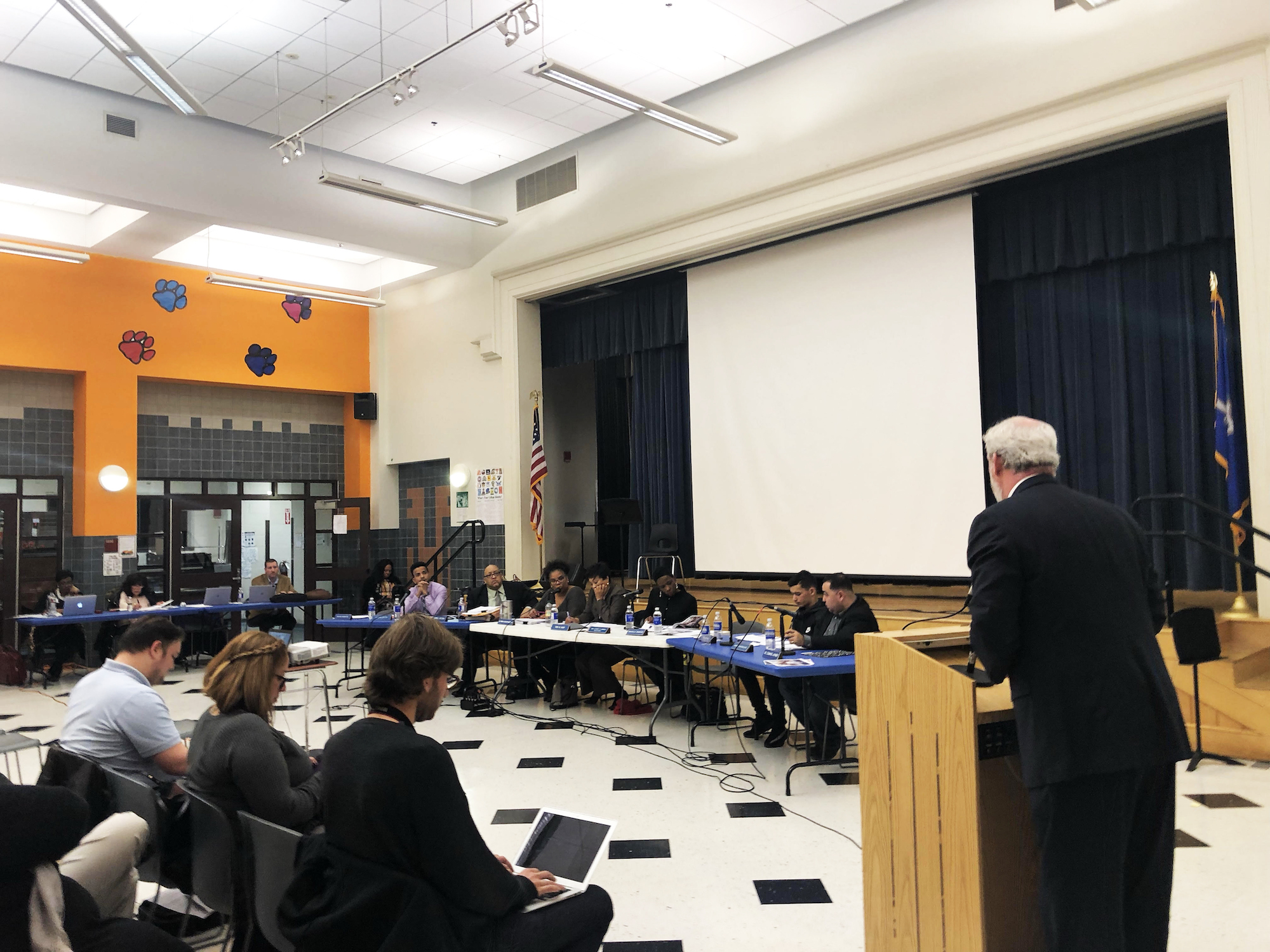
carolyn Sacco
On Monday evening, newly elected New Haven Board of Education President Yesenia Rivera ran her first Board of Education meeting since her unanimous election on Jan. 27.
Monday’s meeting saw Chief Financial Officer of New Haven Public Schools Phillip Penn present an initial estimate for the NHPS 2020–21 school year budget. Rivera now leads a New Haven Board of Education long concerned with what NHPS Advocates member Sarah Miller ’03 described as “perpetual underfunding.” Miller’s comments follow Gov. Ned Lamont’s Feb. 5 state budget recommendations for the 2021 fiscal year. Lamont’s budget recommendations include a 1.5 percent increase in Education Cost Sharing. This compares to a 1.9 percent ECS increase across the state.
“We need a budget that reflects our needs and our values,” Miller said. “We will no longer tolerate insufficient funding for public education year after year.”
Miller noted that the 1.5 percent increase to education cost-sharing grants for New Haven falls below inflation expectations.
According to predictions from market data company Statista, annual inflation in the United States is expected to hit 2.27 percent in 2021.
Connecticut uses an ECS funding formula to allocate school funding. The formula is meant to “represent the estimated cost of educating a general education student” in an equitable manner, according to the School and State Finance Project, a nonprofit policy organization. The formula considers a state contribution to per-pupil funding based on local, or town, wealth, with the intention of prioritizing funding for low-income communities.
“The governor’s proposal maintains his commitment to funding education initiatives by fully funding the ECS formula, increasing curriculum development to improve student outcomes,” read a summary of the budget recommendations released by the Governor’s Office.
The New Haven BOE has run a deficit for six of the last nine years, including the last four years consecutively, according to Penn’s report.
At Monday night’s meeting, Board of Education member and former Board President Darnell Goldson expressed his frustration with the chronic nature of budget shortcomings in NHPS.
“We should not be held responsible for what the state should be responsible for — and to a smaller part the city of New Haven — and that is for funding education,” Goldson said. “I do not intend to be supportive of any proposal that tries to balance the budget on the backs of our teachers or students.”
Accounting for inflation, New Haven Public Schools now operates with about $30 million less in state grants than they did in 2012, according to Penn’s presentation at the meeting.
The district’s budget struggles are further exacerbated by locked-in contractual obligations with teachers and full-time staff, who are guaranteed raises of 3 percent for the 2020–21 budget year. The year’s budget deficit has also contributed to the upcoming budget’s deficit.
Among the financial risks that further threaten to destabilize education funding for New Haven, according to Penn, potential funding reductions at the federal and state level, as well as aging infrastructure and continuing growth in the number of special needs students are also present. State and federal dollars currently account for 83.4 percent of budget funds, with the remaining 16.4 percent raised by local taxes and private grants.
Given the financial situation of the NHPS, Penn presented an initial budget projection that will need nearly $11 million — an increase of 5.73 percent — more than the 2019–20 school year budget. At $199 million, the initial budget request projection would “reflect a turn-the-lights-on budget,” which would expect no new resources or programs to be introduced.
Penn emphasized that struggles surrounding the budget would not result in teacher layoffs — a budget strategy that was used to reduce the budget deficit for the 2019–20 school budget. The layoffs were heavily criticized, with students and parents protesting in wake of the layoffs.
Rivera replaced Goldson, who served as president of the BOE for two years. Goldson was elected in November 2019 to a second four-year term as a member of the Board of Education, and he has remained on the Board of Education since Rivera was elected president. Goldson is now expected to announce a bid for State Senate, the elections for which will take place on Nov. 3.
Rivera was nominated for the role of Board of Education member by then Mayor Toni Harp in February 2019 and was confirmed by the Board of Alders in March 2019. She previously served as program director of Edgewood PTO Child Care for more than two decades. Rivera told the Independent she made a run for board president in an effort to promote students in the board’s decision-making, board transparency and Latino leadership within the city. Before her Jan. 27 election to president, Rivera served as vice president of the Board.
Matthew Wilcox, who was nominated to the Board of Education in March 2019 by Harp and confirmed by the Board of Alders in April 2019, was elected to fill the role of Vice President.
The New Haven Public Schools 2020–21 school year budget will be further discussed at the next Board of Education meeting on Feb. 24.
Nick Tabio | nick.tabio@yale.edu
Emiliano Gomez | emiliano.gomez@yale.edu
Interested in getting more news about New Haven? Join our newsletter!








